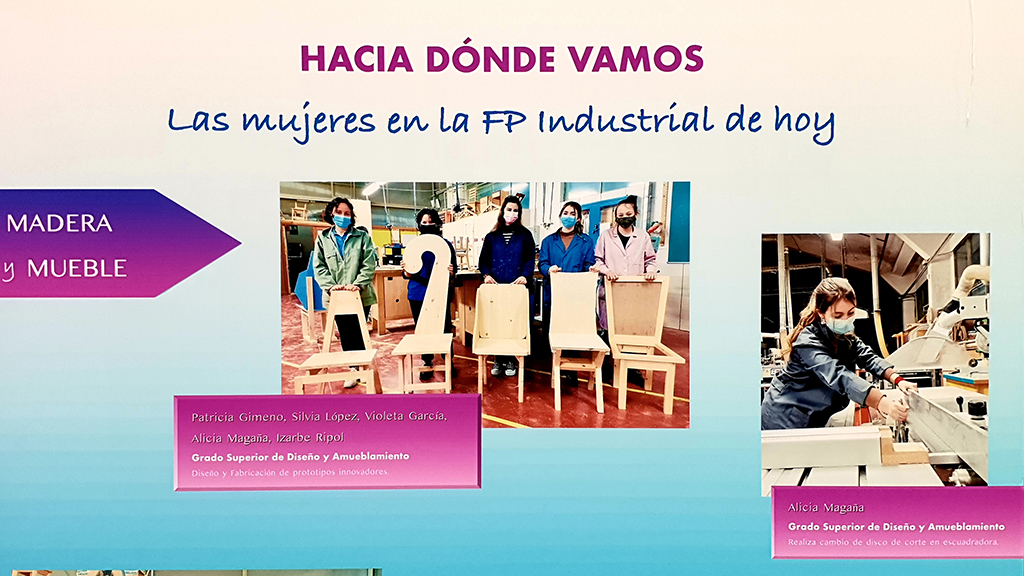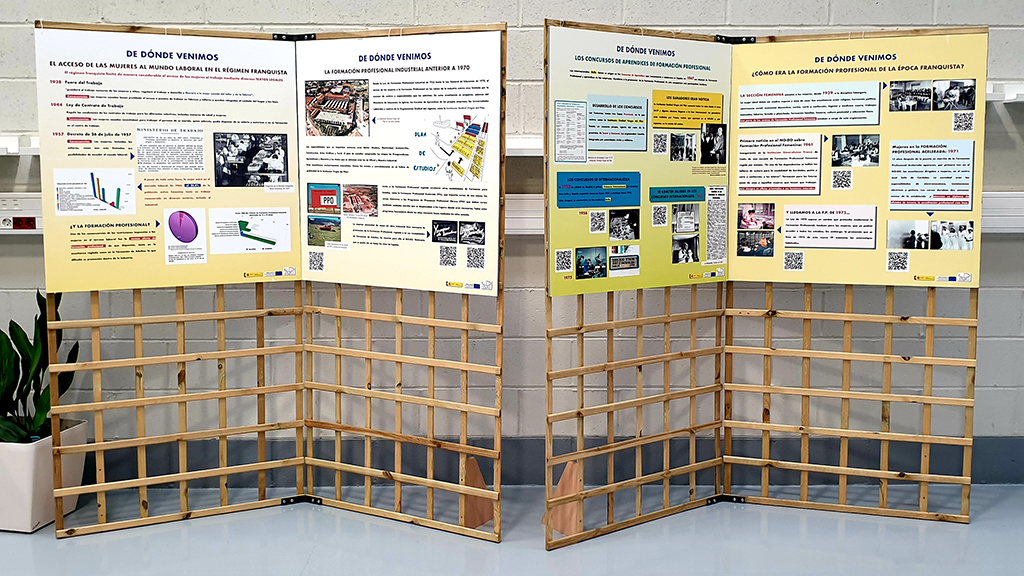
04 Nov Exhibition "Abriendo Brecha", women in vocational training at IES Virgen del Pilar
In our Espacio Desconecta, we have the exhibition Opening the Gap. Stories of women in industrial vocational trainingThe exhibition, an initiative of IES Virgen del Pilar in Zaragoza, recognizes those women who dared, a few years ago when it was not easy for them, to study Vocational Training in the industrial branches. But it is not only a recognition to the women who decided to study these studies in the last century, but also to the women who currently study, work or manage companies in the industrial sector and who continue to "open the gap".
This project was born in the educational center, in order to give visibility to the students of formative cycles, showing through the data and testimonies of women who passed through the IES Virgen del Pilar and those who are still there what was and is their trajectory.
In 1957 the IES Virgen del Pilar, then under the name of Institución Sindical Virgen del Pilar, opened its doors as an Industrial Vocational Training Center "in a world of men, exclusive and excluding". It was a time when few women were studying vocational training and those who did were in "feminine" trades. The journey since then has been long and slow and as the organization of this exhibition indicates: "much has been achieved but, in terms of gender equality, we cannot yet speak of a point of arrival, there is still a long way to go".
The aim of this project is to develop informative activities to promote and encourage the inclusion of women in vocational training cycles. It is a look into the past, to show how women entered the male world, and into the future, to give testimony of the professional expectations of the current students of the technical cycles of the IES Virgen del Pilar.
Now this exhibition can be seen in the Espacio Desconecta of CIFPA, but before that, in addition to the center of origin, it has been in the IES Clara Campoamor. Undoubtedly it will continue its tour through the Aragonese educational centers because it is necessary that we all contribute to disseminate the technical teachings included in the Vocational Training and that each year there are more women interested in training to enter professional sectors with wide employability and professional projection.





